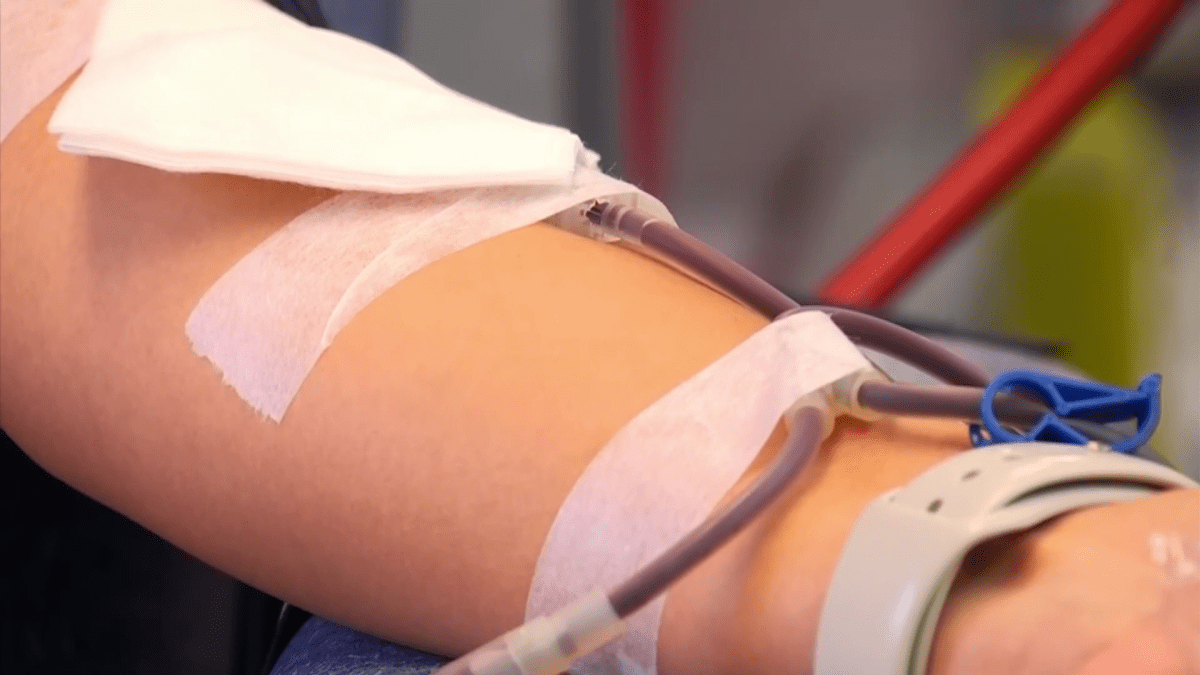Blood
You can expect new screening questions if you donate blood in Illinois
Starting on Aug. 28, 2023, anyone checking into donate blood at all Versiti Blood Center locations and blood drives will get a tablet with a new set of screening questions.
“Everybody is being treated the same. The series of questions, regardless of your age, your sex, your gender, your sexual orientation, will be the same for every donor that walks through the door,” said Amy Smith, Area Vice President of Versiti Blood Center of Illinois & Director of Donor Services Operations.
Versiti is implementing a change the FDA made in May 2023. Instead of banning gay and bisexual man from donating, the FDA is urging individual risk assessment for HIV and other blood-borne diseases.
“That’s not just gay man, that is a lot of other populations. And that’s what these individualized risk assessments now adopt,” said Dr. Anu Hazra, an adult infectious disease physician at UChicago Medicine.
“This is one of the most significant changes in blood banking and blood donation history,” said Joy Squier, a spokesperson for the Illinois Region of the American Red Cross.
American Red Cross Blood Services implemented the universal screening guidelines a couple weeks ago, in early August.
“It was a long time coming. The Red Cross supplied a lot of data to the FDA for the advanced study, which went on for several years and made this change possible,” Squier said.
The history of gay and bisexual men being excluded from donating goes back many years.
“The initial blood bans bore out of the panic around AIDS in the 1980’s. So that was really the major issue of why gay men and men who have sex with men were banned from donating blood,” Hazra said. “In the past 40 years, we have really evolved our screening mechanisms for the blood supply for both HIV as well as other blood borne pathogens.”
The new screening questions ask everyone, regardless of their gender, sex or sexual orientation about their sexual history in the past three months. That applies to men and women, which could make some heterosexuals who aren’t in monogamous relationships ineligible.
“As you come in and you’re asked those questions based on your sexual activity within the last three months, that will be something that could potentially defer you as well,” Smith said. “When you walk in our staff has been trained to be there to help anybody with the questions that they have. Feel free to ask those questions. And I just ask everybody to just be inclusive as they can about this, because it’s about the blood and the patient need on the other end of what we’re here to do to make life saving great for everyone.”
Overall, the new screening guidelines are expected to expand the donor pool and the blood supply, which is traditionally low at the end of summer, and this year is no exception.
“It will be a struggle through the Labor Day holiday, especially our O negative and O positive donors. If you’re eligible and you can, or you’re a first time donor, we just are welcoming anybody to come in and help ensure that that blood supply is in good, healthy need,” Smith said.
Steven Galloway, from Aurora is O negative. He’s donated regularly for 30 years and welcomes the screening changes.
“The more the merrier, like I said, I got two kids that are paramedics and blood’s always a need, so I take pride in donating,” Galloway said.

